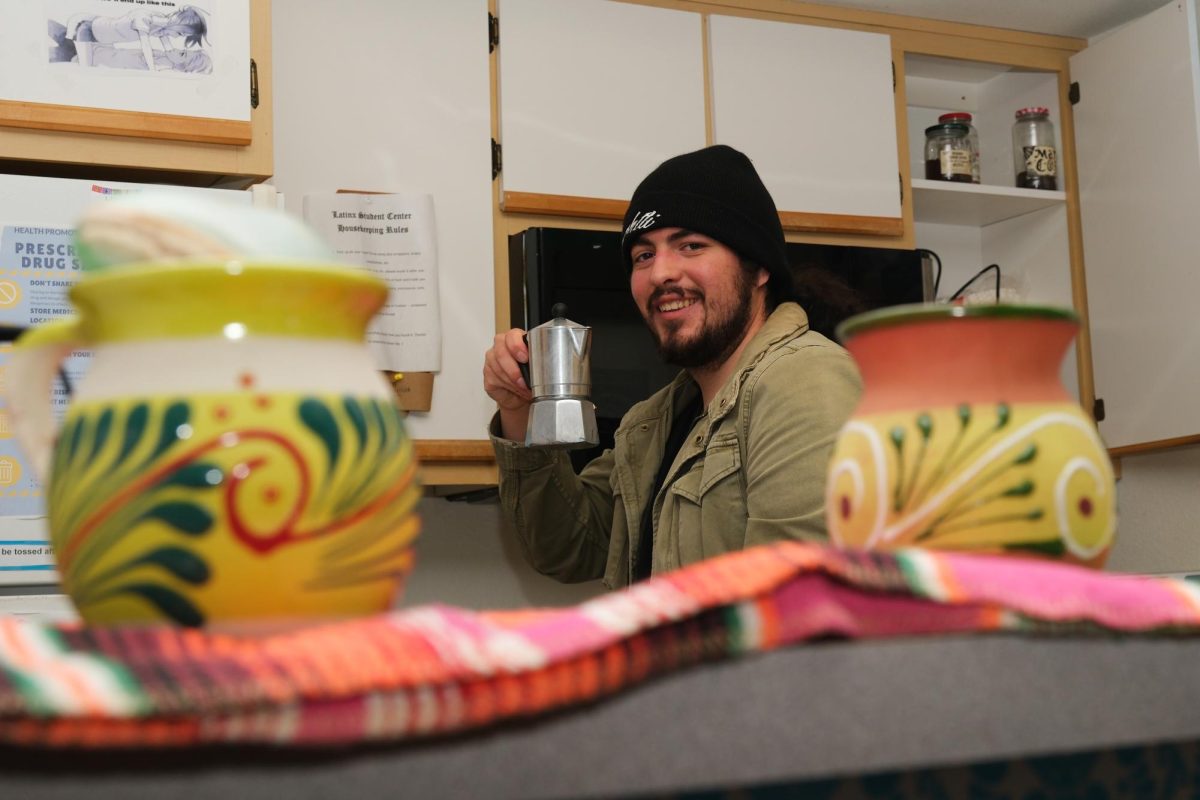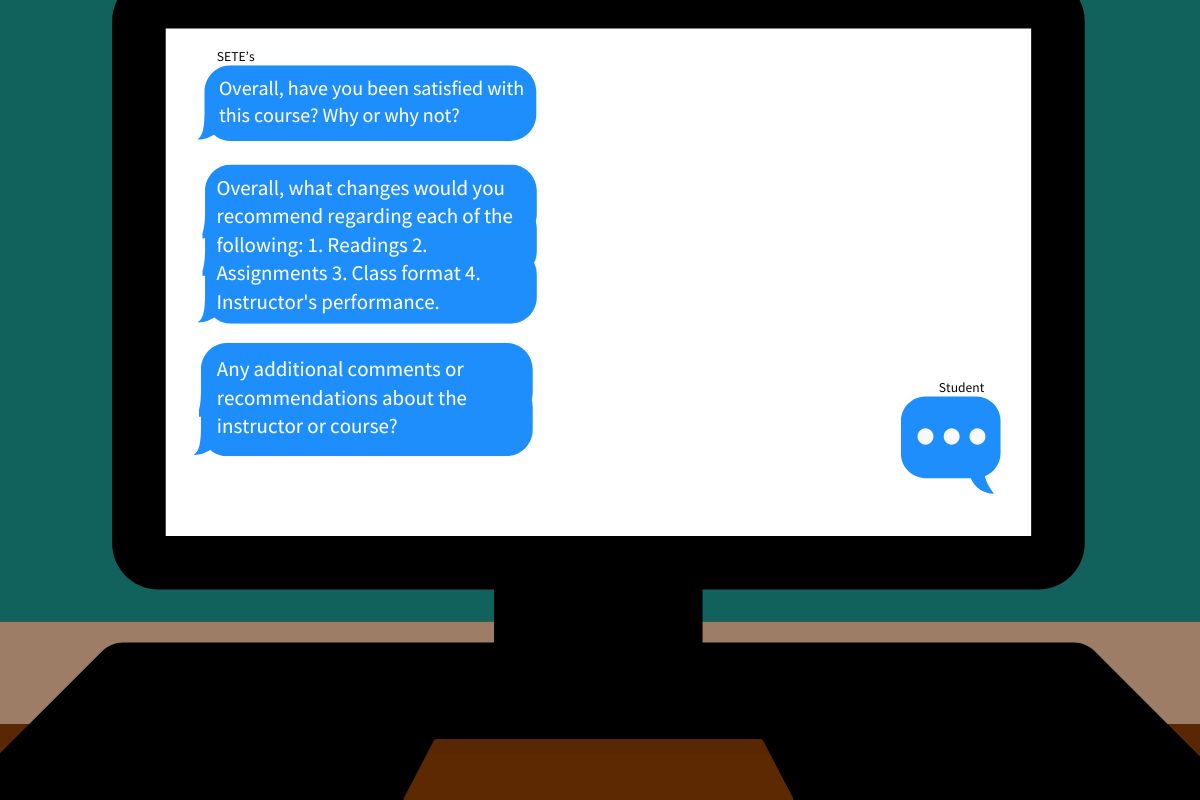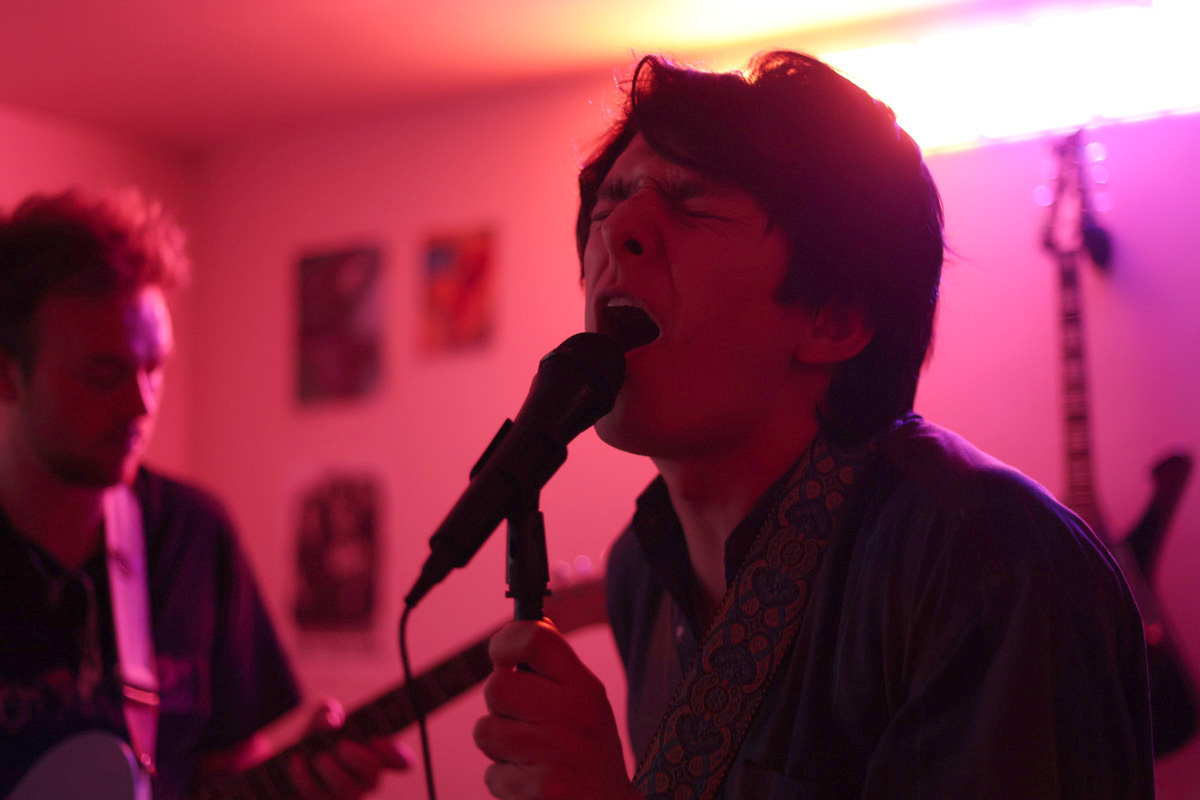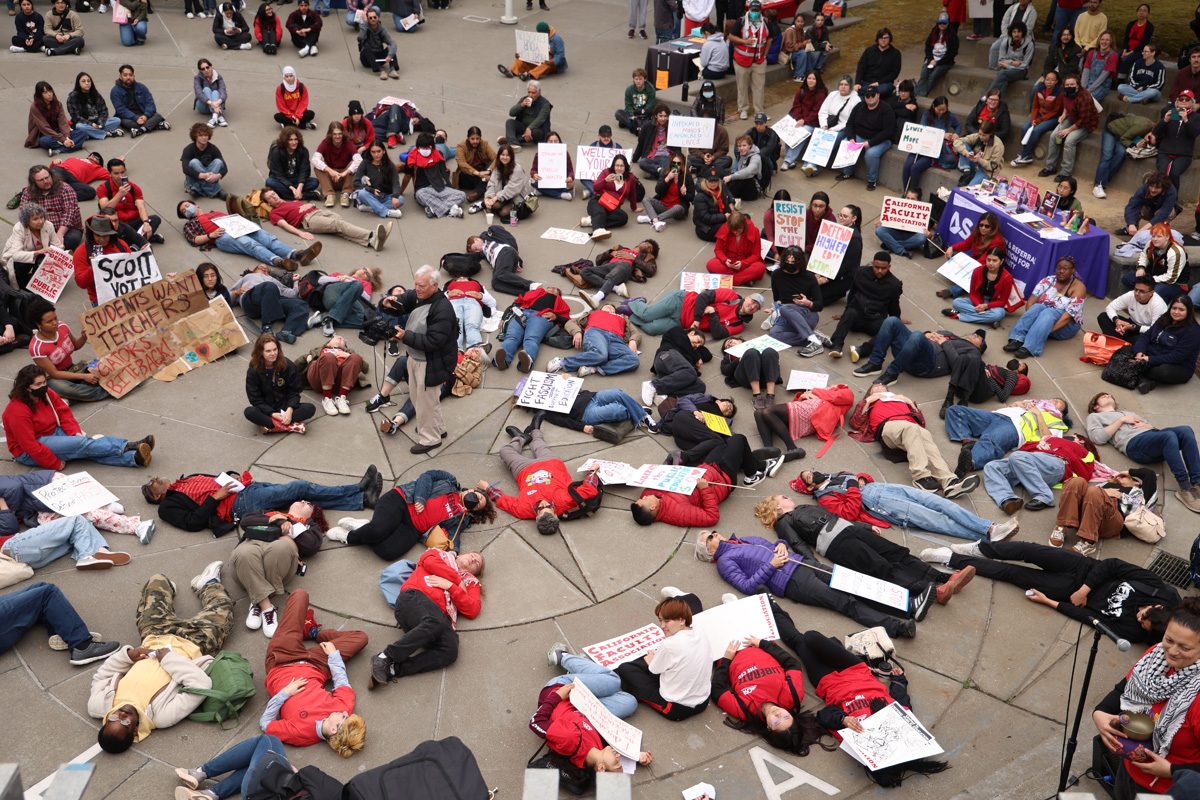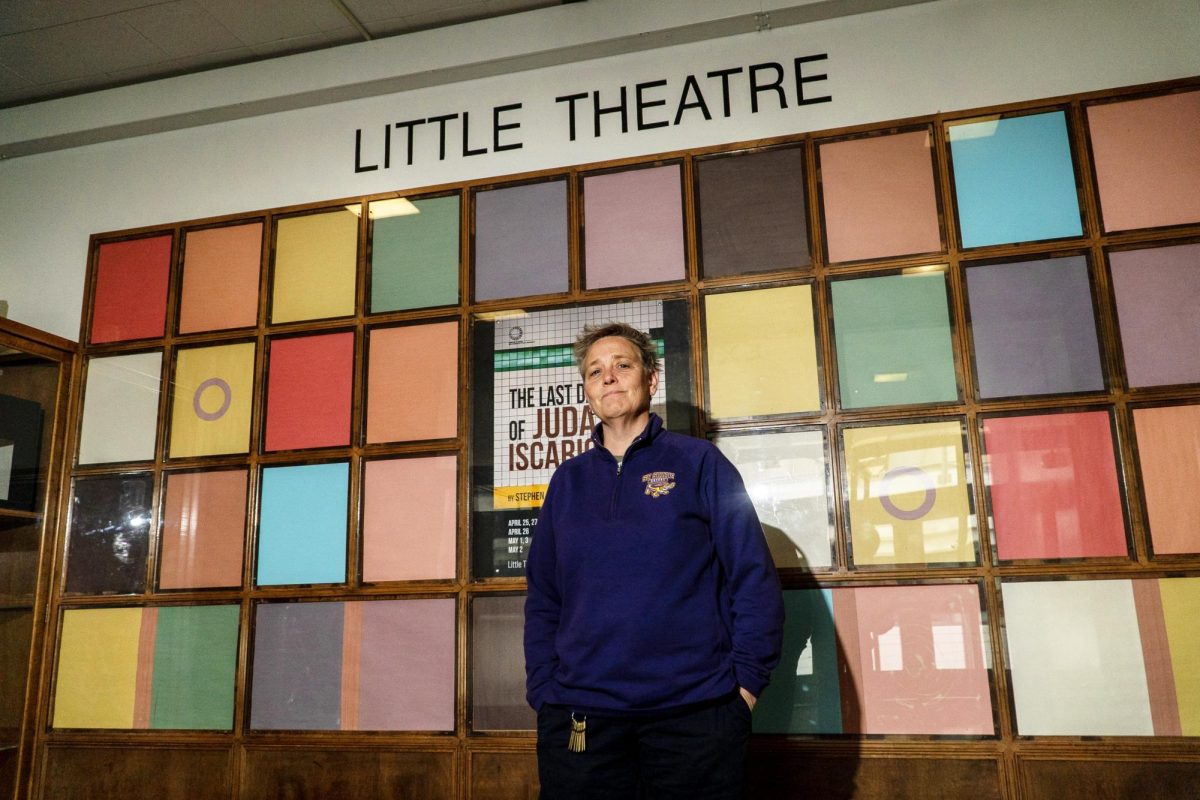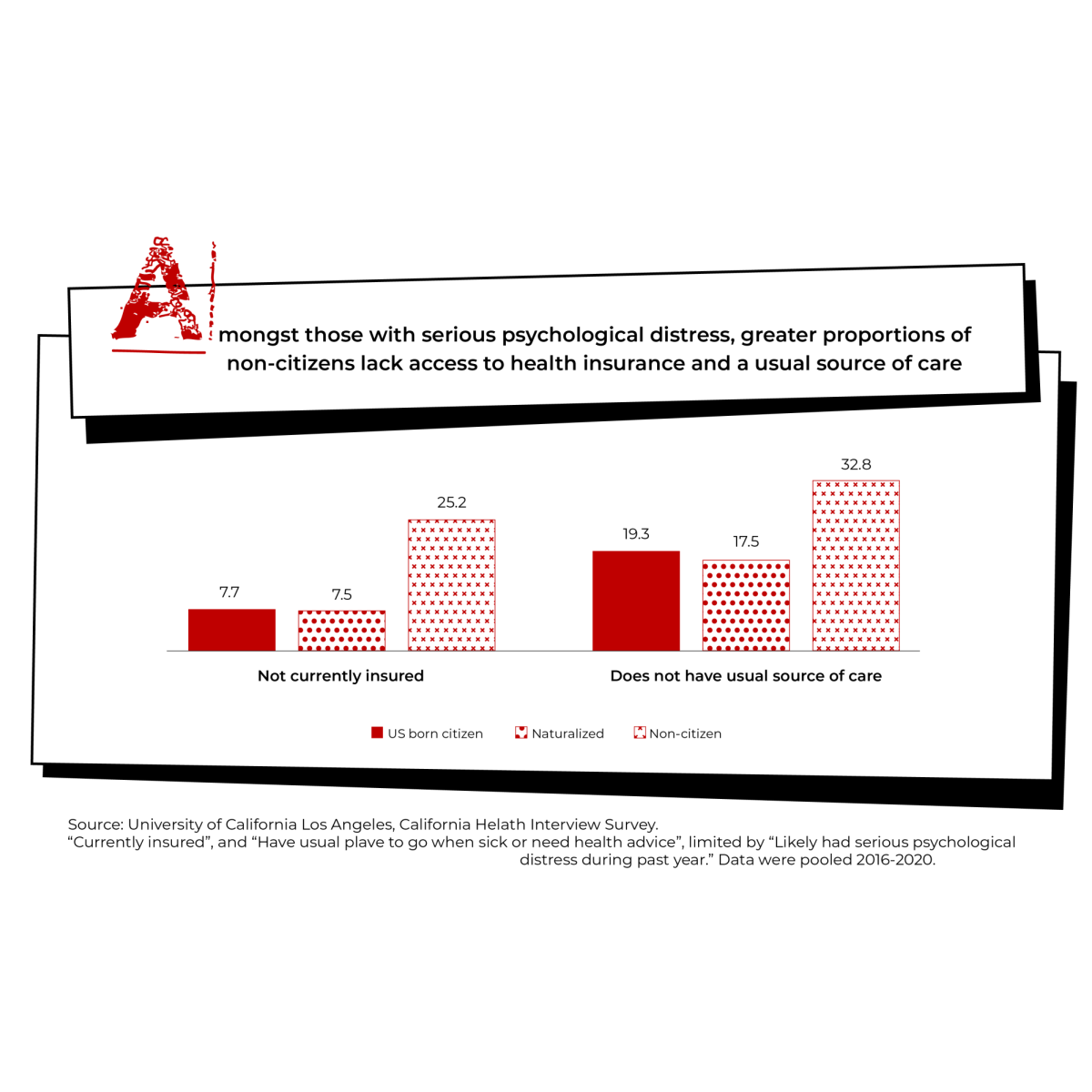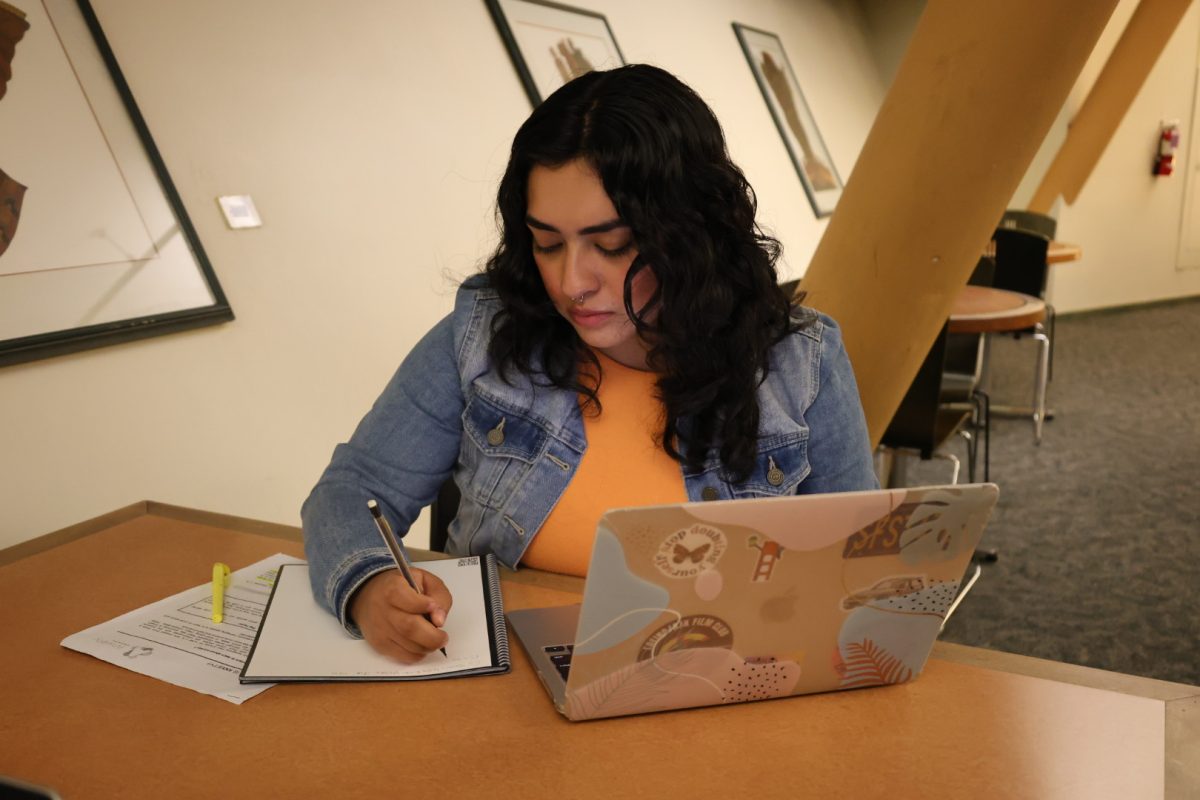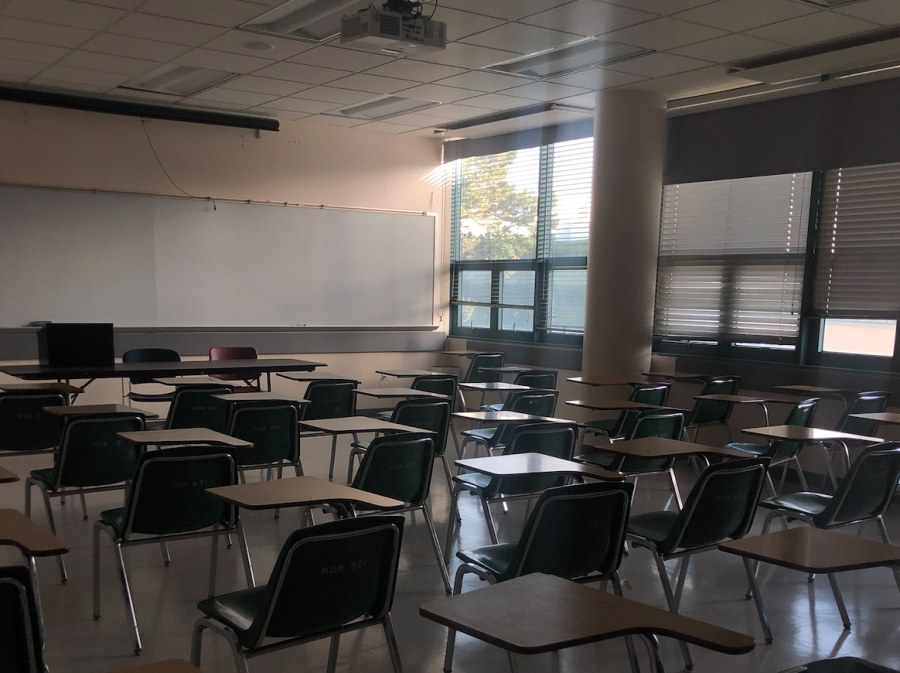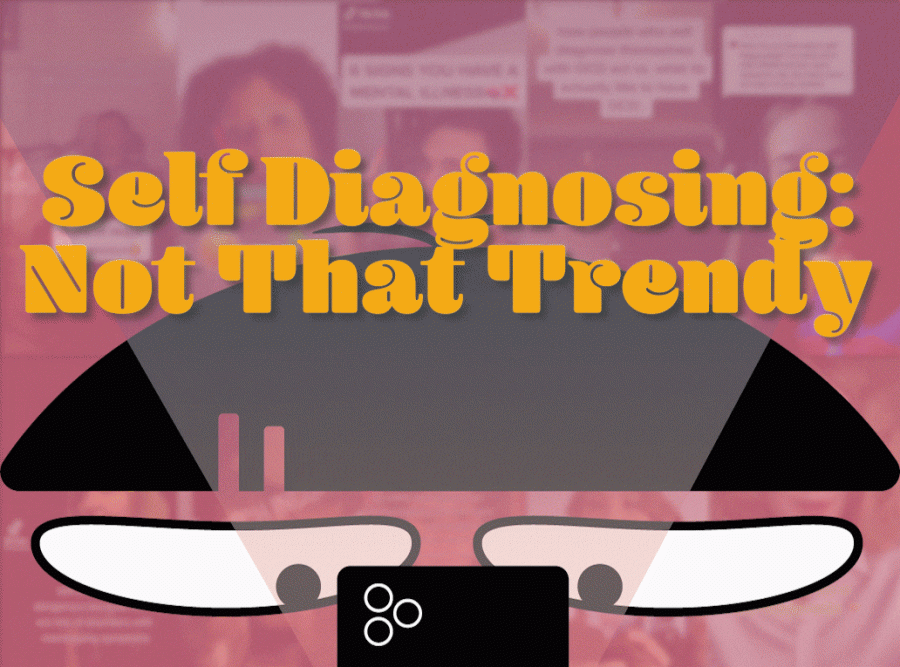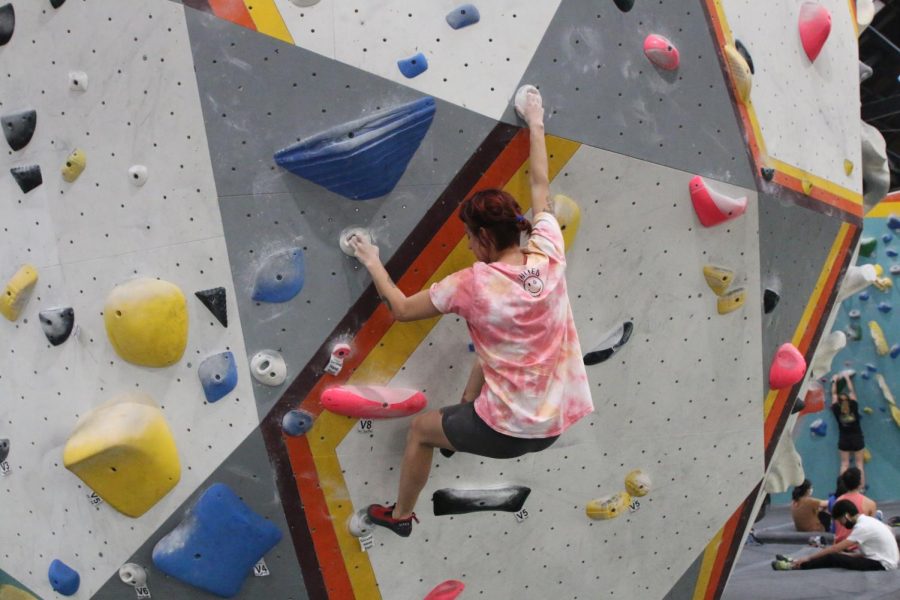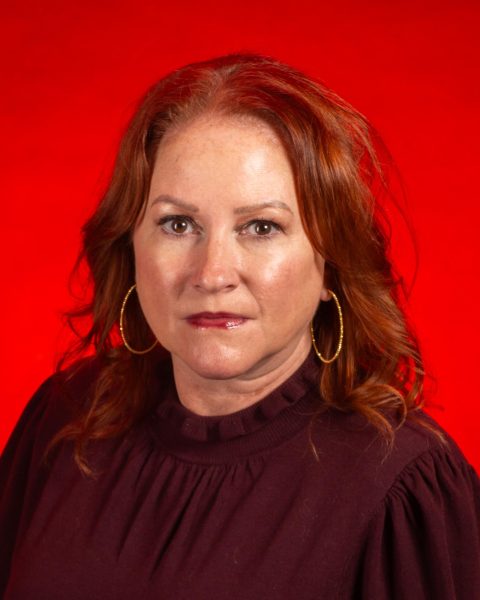Every day, Emmanuel Padilla opens the doors of the Latinx Student Center, where individuals are met with a warm, colorful and welcoming environment. The center serves as an emotional support system for the Latinx student community and provides study spaces, a comfortable seating area and—most importantly—snacks. As the director of the Latinx Student Center, Padilla’s mission is to help students “develop [an] authentic identity” and feel comfortable expressing themselves in their daily lives. Padilla often jokes that, at times, he is an unofficial therapist to the students.
Juanello Martinez, a current student at SF State, is a center regular. He finds it to be a place where he could meet fellow students—a place where they could find common ground. The camaraderie he’s experienced has helped him feel more connected to the Latine community on campus.
“Coming to the student center […] made me much more capable of improving my mental state because, you know, I’m a social person,” said Martinez. “Having places like this on campus—it’s kind of like a supplement for our mental health.”
SF State has long been known for welcoming a diverse student population; the first-ever college of ethnic studies was established here in 1968, after a five-monthlong student-led strike. To this day, the student population continues to be multicultural. The Latine community is the largest demographic on campus, accounting for 37% of the student body, as of Fall 2023.
Mental health statistics among college students are a major concern in our country today. More than 60% of students display at least one symptom of a mental health disorder. It is reported that individuals within the Latine community don’t seek mental health services as often as others; 35.1% of Latine seek help as opposed to the U.S. average of 46.2% of all adults. This begs the question: are Latine students at SF State getting the mental health support they need?
Padilla says Latine students avoid getting help because they “don’t know how to do it” and “don’t want to seem weak.”
More than half of the Latine population between the ages of 18 and 25 who experience severe mental health struggles do not seek treatment for a number of reasons. The Latine community often faces disparities in both access to and quality of treatment. Without treatment, mental health conditions tend to regress.
Fourth-year student Michael Ramirez knows first-hand what it’s like to struggle with mental health. He grew up in a rather toxic environment fostered by frequent—sometimes even violent—outbursts.
“It’s been a very difficult journey,” said Ramirez. “[Mental health was] not being talked about.”
Ramirez and his siblings experienced feelings of distress and trauma as a result of these experiences; feelings that they couldn’t identify, understand or detach from.
“[His dad] would act very violently and my reaction was to hide from it,” said Ramirez. “I would lock myself in a closet or just try to be as far away from whoever’s angry as I possibly can.”
As a psychology major, Ramirez eventually came to understand how the lack of mental health resources and information growing up really affected him. He was struggling so much that he sought therapy; something that, in his community, wasn’t offered or discussed.
CONTRIBUTING FACTORS
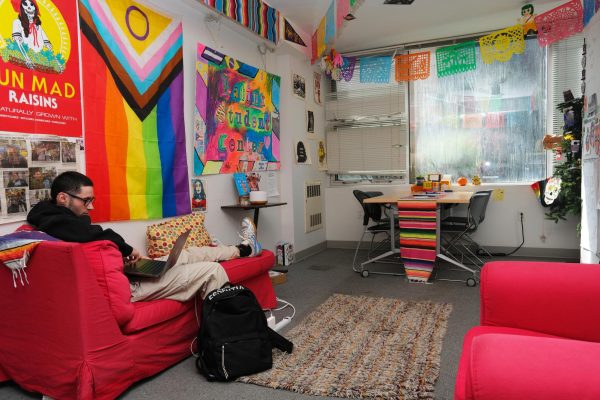
College students may be more at risk of struggling with mental health issues due to the fast-paced tempo of campus life and academic demands.
“It feels really intense like we have this deadline,” said Padilla. “That causes students to sometimes forget about themselves and about their needs, prioritizing classes before their health.”
Language barriers and affordability are also some obstacles to receiving mental health services. According to the Substance Abuse and Mental Health Services Administration, 17% of the Latine population in the U.S. live in poverty, as compared to the 8.2% of non-Hispanic individuals. Those who live in poverty are at a higher risk of mental illness and, conversely, those with a diagnosed mental illness have a higher rate of living in poverty. Lack of health insurance is another contributing factor. According to the Kaiser Family Foundation, 18% of Hispanic people are living without health insurance.
“While we cannot speak to all of the healthcare industry, some of what we do is focused on increasing access and decreasing barriers to treatment,” said Stephen Chen, director of Counseling and Psychological Services at SF State, in an email.
According to Padilla, the Latine community can be more reserved than others and may not want to talk about challenges at home, in their lives or they just don’t know how.
“You get to college as [the] first in your family […] and now you’re on your own […] to be a self-advocate,” said Padilla. “Growing up, you never had to [be] an advocate like that. That’s a training that a lot of people think is embedded but it’s not—we have to learn that.”
Opening up about mental health can be viewed as taboo in Hispanic culture, especially for men. Defined within the culture as “machismo,” there is generally a superior value for characteristics associated with masculinity, while feminine traits are normally greeted with hostility. This instinct to repress one’s problems can perpetuate the continuous stigma surrounding mental health within the community. Many feel ashamed to talk about these issues, let alone seek aid. There is often fear of being called “crazy” or bringing shame to one’s family.
“[My mom was] brave enough and had the courage to recognize that her childhood didn’t teach her much about how to support the mental health of her children,” said Martinez. “She has a responsibility to kind of step out of her comfort zone, and support us in ways that she never saw her parents support her.”
The stigma likely stems from a lack of understanding and learning opportunities about the reality of mental health. Without awareness, symptoms of mental health issues can be easily overlooked when they are unknown. In addition, there is a lack of education about what kind of services are even available. All of these contribute to students not getting help.
“There are certainly different views around mental health across cultures and much of our work around outreach focuses on destigmatizing mental health amongst Latine, Black and Asian populations,” wrote Chen.
Ramirez said he felt stigmatized when he informed his family that he was going to study psychology instead of computer science.
“They would say ‘That’s not a real science,’ ” said Ramirez.
HOW TO GET HELP
SF State has several resources to support all students including the Latine community. The best place to start is CAPS, which offers counseling services, crisis consultations and other resources.
“Destigmatizing mental health is so crucial in helping connect individuals that have not experienced counseling before,” said Chen.
CAPS offers a program on campus called “Let’s Talk,” which they have been expanding. The program goes to community spaces for free, providing confidential, one-on-one informal meetings with CAPS counselors. The goal is to make mental health care feel less intimidating. It is may feel less intimidating to go and chat with someone about problems instead of seeking out therapy.
“Whether it is stress, sadness, relationship problems or academic pressures, sharing your concern with another person can make a positive difference,” said Chen. “ ‘Let’s Talk’ is a place where you can talk about concerns and receive expert suggestions about solutions and resources or just have someone to listen and offer support.”
CAPS can also help uninsured students sign up for Medi-Cal to help with access to health care and other needed resources.
“I’ve been working with my therapist for a long time to address that trauma,” said Ramirez. “Recently […] I’ve had a breakthrough and I understand myself and listen to myself.”
Overall, Padilla thinks SF State does a good job in providing students with mental health care access; however, he also feels that they can do better.
“Everybody’s different, but we can do more,” said Padilla.



